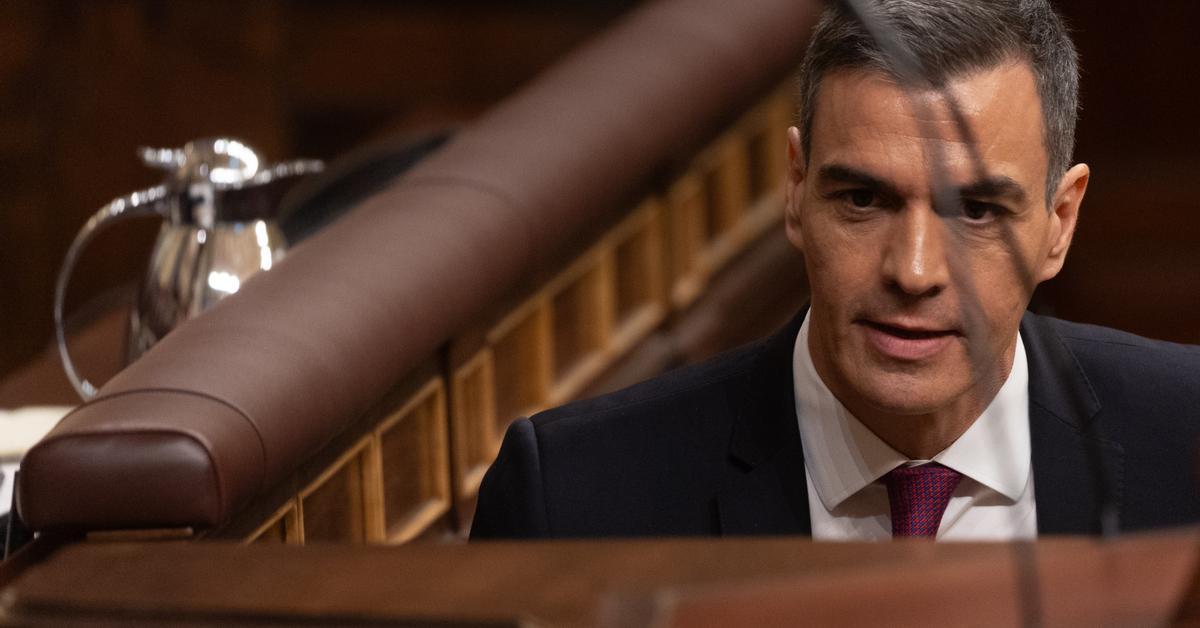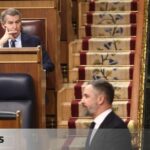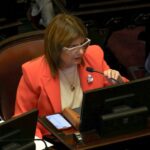
And now that? It is the question that hovers among socialists. The Government and PSOE have breathed a sigh of relief, yes, after Pedro Sánchez’s decision to remain in office and mark a turning point, but they do not hide a deep feeling of discouragement after the latest twist in the script by the Chief Executive. And what the president transmitted in the last Council of Ministers was a message of calm and a firm determination to act to renew the Council of the Judiciary and put a stop to misinformation and hoaxes.
The decline transmitted by the leadership and even some ministers has nothing to do with the debates or the initiatives that the Government will promote, but with the personal “and personalistic” management that the president and secretary general has made of an institutional and political decision that , if it had ended in resignation as was feared until the last moment, it would have had unimaginable consequences in the governmental and organic spheres.
And, beyond the empathy and sensitivity that the situation that the president has gone through during these five days deserves, what underlies all of this, in the eyes of a member of the socialist leadership, is that a political decision and institutional “cannot be resolved due to personal motivations.” “If in the face of depression, collapse or emotional stress, decisions are made from a personal level and not according to a political strategy, we have a problem,” adds the same interlocutor. “That there are no mechanisms or teams in the Government or in the PSOE to stop or manage the decision that the president adopted with himself is even more serious,” adds the same interlocutor.
The eternal debate about hyperleadership
The reflection undoubtedly fuels the debate on hyper-leadership in the parties and the consequences of the primaries, which, although being an unquestionable advance in the democracy of political organizations, have also served to build personalist leaderships and destroy the internal counterweights with the that political leaders once had to deal with. Pedro Sánchez imposed a PSOE model based on the direct relationship of the general secretary with the militants, eliminated the role of the territorial barons and reserved control of the lists for himself. A situation that, paradoxical as it may be, has given more power to the leader than to the bases.
“In this last movement, he is gone, he is back and who knows if he will go again. The fact is that he does not share the decisions, something that in some way had always been the case, although this time he has done it in the eyes of the whole world,” laments a member of the socialist leadership who was at the genesis of the political project of the general secretary of the PSOE since its first primaries in 2014.
“These days we have seen the most negative consequences of the primaries and of a certain party model,” adds another socialist leader, who is also unable to find a concrete answer as to whether this should lead the PSOE to internal reflection on the future and If it is Sánchez, after having threatened to resign, the person who must draw up the roadmap for a possible replacement when the case arises. He agrees, however, with several of his colleagues that “neither the leadership nor the militancy are exultant after what happened, but rather worried.”
More than a dozen voices consulted by elDiario.es at both the governmental and organizational levels converge to ask: where has the PSOE been throughout this episode? If it happens again tomorrow, what do we do? And this is the debate that they understand that Sánchez himself has wanted to short-circuit by declaring himself strong before the Ser microphones for the next seven years. If it were the opposite, he wouldn’t say it either, but the socialists have understood that what he was looking for with these words was to settle the debate about possible replacements or possible future leaderships.
What no one doubts is that today, even after the president’s turn of the script after his five days of reflection, the PSOE is Pedro Sánchez and “that is how it will continue to be as long as he decides.” A different issue is the heartbeat of the leadership and even of some ministers. One of them speaks of an “end of the cycle that will take more or less time to arrive, that we will see in six months or three years, but that after all this there has to be something different.” And it is not referring to Sánchez, but to the confusion caused in the organization and the Government during the days when everyone believed that the president was resigning. He is the same one who admits that he is missing keys and many answers about what happened in the last week and who recognizes obvious failures in the management of all of this. Thus, he agrees with other respondents that the problem has been “Sanchez’s decision not to share with anyone the decision in the letter with which he announced that he was stopping for a few days and in which he asked himself if it was worth continuing.” ”. Because, he concludes: “That he does not share a decision of political significance except with himself, and not with his cabinet, the government or the Organization Secretariat of the PSOE has been on the verge of taking us to the abyss.”
In fact, Sánchez only informed his chief of staff, Oscar López, after having written the letter in his own handwriting so that he could upload it to social networks. And, later, he did not share the decision to continue leading the position with anyone until 10 in the morning on Monday, an hour before making it public and after returning from his audience in Zarzuela with Felipe VI. Later, he only shared it with López, María Jesús Montero and Félix Bolaños and the ‘number three’ of the party, Santos Cerdán.
“Decisions are no longer made even with the closest team, which deactivates the entire party,” adds another resigned member of the socialist leadership who, in reference to the succession debate and what happens after Sánchez, admits that during the days of reflection of the president, “everyone thought of someone”, but that the natural relief would have fallen on María Jesús Montero, both for a hypothetical investiture, and for the general secretary, since she is also the second in the party ranks.
Once invested, and if she had wanted to stay, after holding the presidency of the Government, “no one would have opposed her being the next head of the list,” he adds.

When the relief is signaled by a defeated…
And further into the future, it will depend on whether the debate opens “when we have lost the elections or if, before losing them, Sánchez announces that he will not run again,” says someone who knows the socialist organization well from the inside. If after an electoral defeat, “the replacement is indicated by the defeated, it will be a failure, as Almunia was when he was anointed by Felipe González, and Rubalcaba, when Zapatero decided,” predicts a fervent defender of the primaries who is no stranger to the voices that want the future to pass through the Minister of Education, Pilar Alegría.
Zapatero’s is one of them, although some leaders today on the front line agree with his commitment and mock those who, from mountains not so far away, have taken advantage of this week to get out of ostracism, reactivate their social networks, ask for passage in the media and claiming that he was available for whatever the party asks for. “It was the president announcing that he was not leaving and returning to his sarcophagus,” they say ironically about whom it is not necessary to give names or many more clues.
Without a doubt, there is a before and after of Pedro Sánchez’s last move. The succession debate has not started, but there is a shared analysis on hyper-leadership, the party model and, above all, on the consequences of having made institutional and organic decisions from an absolutely personal level in which neither the Government nor the PSOE They have been able to participate because “Sánchez is still Sánchez,” says one of his closest collaborators.
Source: www.eldiario.es

